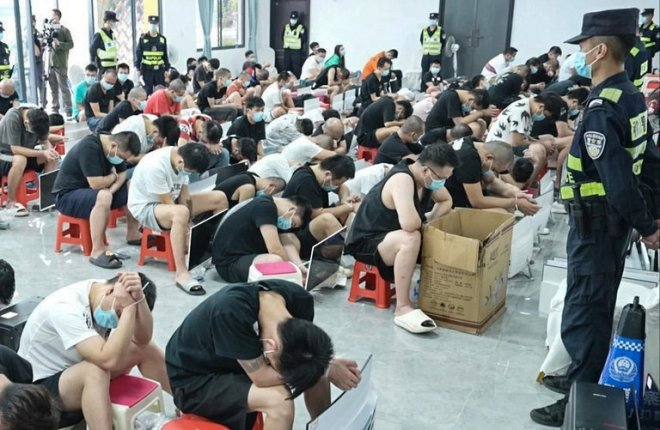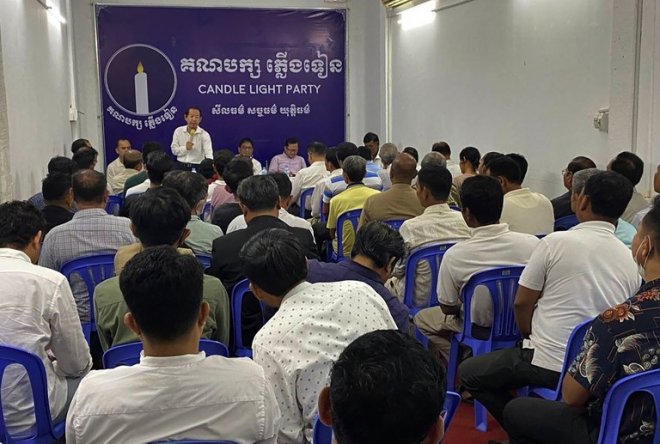Vietnamese legal expert arrested for providing information to ‘foreign entities’
A Vietnamese legal expert has been arrested for providing classified information to “foreign entities” in a move possibly linked to his support for personal property rights in the one-party communist state, RFA has learned.Hoang Ngoc Giao, director of the Institute for Policies on Law and Development under the Vietnam Union of Science and Technology, was taken into custody on Dec. 16 and charged with espionage under Clause 1, Article 110 of Vietnam’s Penal Code.
Speaking to RFA by telephone, a former government official confirmed the arrest, which was not covered by reports in state media.
“He was arrested on Friday,” said Nguyen Khac Mai, formerly director of the research department of the Communist Party of Vietnam’s Central Mass Mobilization Department. “When I asked about the reason, I was told he had been arrested for sending certain materials abroad.”
Mai added that his sources did not say to which country or persons the unspecified materials had been sent.
Reached for comment, a woman answering the phone at Giao’s residence declined to discuss the arrest.
Phone calls to Vietnam’s Ministry of Public Security and to Giao’s office at the Institute for Policies on Law and Development, or PLD, meanwhile rang unanswered.
Under Vietnamese law, Giao could be given 12 to 20 years or a life term in prison or be sentenced to death if convicted of the charges made against him.
Support for personal property rights
Speaking to RFA, Mai said Giao may have angered authorities by supporting citizens’ personal property rights at a meeting held in November to discuss changes to Vietnam’s Land Law.
“I think that the arrest was just an excuse to prevent Hoang Ngoc Giao from digging deeper into the issues of the Land Law that they are planning to amend,” Mai said.
“They often find a way to control anyone doing things that the authorities and leaders do not like.”
“Hoang Ngoc Giao and anyone else making frank and fair recommendations that highlight the current contradictions could be targeted at any time,” Mai added.
Vietnamese law currently allows agricultural land and other property to be taken from those living or working on the land and given to business enterprises for project development, leading to frequent disputes.
Vietnamese authorities often view the sharing of documents outside of state control as a violation of national security, Mai said. “But the exchange of opinions or studies [between experts from different countries] should have been considered a normal practice by now.”
Commenting on the arrest, Nguyen Quang A — a former director of Vietnam’s now-dissolved Institute for Development Studies — said he did not know why Giao had been taken into custody and charged.
“Many say that the authorities have a quota of ‘suppressions’ to be made by the end of each year,” he said. “One thing I can be sure of is that they will continue to tighten an already tightened situation.”
Translated by Anna Vu for RFA Vietnamese. Written in English by Richard Finney.
[圖擷取自網路,如有疑問請私訊]
|
本篇 |
不想錯過? 請追蹤FB專頁! |
| 喜歡這篇嗎?快分享吧! |
相關文章
AsianNewsCast























